Opinion
Don’t give campus censors more power — they’ll double down on woke agenda

From the MacDonald Laurier Institute
By Bruce Pardy
Expression on campus is already subject to the laws of the land, which prohibit assault, defamation, harassment, and more. The university has no need for a policy to adopt these laws and no power to avoid them.
Last Saturday, Liz Magill resigned as president of the University of Pennsylvania. Four days earlier she had testified before Congress about campus antisemitism. Does calling for the genocide of Jews violate Penn’s code of conduct? “It is a context-dependent decision,” Magill equivocated. Billionaire hedge fund manager Bill Ackman launched a campaign calling for Magill to step down, along with the presidents of Harvard and MIT, who testified alongside her. Their reluctance to condemn revealed a double standard. That double standard, like the titillation of a scandal, has distracted from the bigger mistake. Universities should not police the content of expression on their campuses.
In 2019, I invited a member of Penn’s law school to give a lecture at Queen’s University, where I teach. Some students at my law school launched a petition to prevent the talk. To their credit, administrators at Queen’s did not heed the call, even though the professor I invited, Amy Wax, had become a controversial academic figure. In 2017, she championed “bourgeois culture” in an opinion essay in the Philadelphia Inquirer (with Larry Alexander of the University of San Diego). The piece suggested that the breakdown of post-Second World War norms was producing social decay. Some cultures are less able than others, it argued, to prepare people to be productive citizens. Students and professors condemned the column as hate speech. It was racist, white supremacist, xenophobic and “heteropatriarchal,” they said.
Wax was not deterred. She continued to comment about laws and policies on social welfare, affirmative action, immigration, and race. When she was critical of Penn Law’s affirmative action program, the dean barred her from teaching first-year law students. In June 2023, he filed a disciplinary complaint against her, seeking to strip her of tenure and fire her. It accused Wax of “intentional and incessant racist, sexist, xenophobic and homophobic actions and statements.” The complaint alleged that she had violated the university’s non-discrimination policies and Principles of Responsible Conduct. But unlike others, allegedly, on Penn’s campus, Wax had not called for, nor was she accused of calling for, violence or genocide. She continues to wait for a decision in her case.
For years, North American universities have embraced certain political causes and blacklisted others. To stay out of trouble, choose carefully what you say. You can accuse men of toxic masculinity, but don’t declare that transgender women are men. You can say that black lives matter, but not that white lives matter too. Don’t suggest that men on average are better at some things and women at others, even if that is what the data says. Don’t attribute differential achievement between races to anything but racism, even if the evidence says otherwise. Don’t eschew the ideology of equity, diversity, and inclusion if you want funding for your research project. You can blame white people for anything. And if the context is right, maybe you can call for the genocide of Jews. Double standards on speech have become embedded in university culture.
Universities should not supervise speech. Expression on campus is already subject to the laws of the land, which prohibit assault, defamation, harassment, and more. The university has no need for a policy to adopt these laws and no power to avoid them. If during class I accuse two colleagues of cheating on their taxes, they can sue me for defamation. If I advocate genocide, the police can charge me under the Criminal Code.
In principle, universities should be empty shells. Professors and students have opinions, but universities should not. But instead, they have become political institutions. They disapprove of expression that conflicts with their social justice mission. Speech on campus is more restricted than in the town square.
The principle that universities should not supervise speech has a legitimate exception. Expression should be free but should not interfere with the rights of others to speak and to listen. On campus, rules that limit how, when, and where you may shout from the rooftops preserve the rights of your peers. Any student or professor can opine about the Ukrainian war, but not during math class. Protesters can disagree with visiting speakers but have no right to shout them down. Such rules do not regulate the content of speech, but its time and place. If you write a column in the student newspaper or argue your case in a debate, you interfere with no one. The university should have no interest in what you say.
Penn donors helped push Magill out the door. In the face of rising antisemitism, more donors and alumni in the U.S. and Canada are urging their alma maters to punish hateful expression. They have good intentions but are making a mistake. They want universities to use an even larger stick to censure speech. Having witnessed universities exercise their powers poorly, they seek to give them more. Universities will not use that larger stick in the way these alumni intend. Instead, in the long run, they will double down on their double standards. They are more likely to wield the stick against the next Amy Wax than against woke anti-Semites.
The way to defeat double standards on speech is to demand no standards at all. Less, not more, oversight from universities on speech is the answer. If a campus mob advocates genocide, call the police. The police, not the universities, enforce the laws of the land.
Bruce Pardy is executive director of Rights Probe and professor of law at Queen’s University.
Alberta
No Permission Required: Alberta Will Protect Its Daughters

Section 33 Is a Legitimate Democratic Instrument
Tell everyone. There is no Charter right for a biological male to compete against females in women’s sports. Nor is there a constitutional right for children to be maimed and rendered sterile in service to self-proclaimed identities. And there is certainly no excuse for a government in Ottawa to interfere with provinces’ ability to defend women and girls from the fallout of sexual fetishism dressed in federalist drags.
Yet here we are.
Albertans are being invited to ask an important question. When rights collide, should we trust the flawed judgment of elected officials who face the people every few years, or surrender that authority to similarly flawed judges selected in near secrecy, immune to removal, and uninterested in the lived realities of the citizens they affect?
Section 33 of the Charter—the “notwithstanding clause”—exists for precisely this purpose. It was never a loophole. It was a constitutional safeguard demanded by Premiers like Alberta’s Peter Lougheed and Saskatchewan’s Allan Blakeney. It was their condition for agreeing to the Trudeau Charter in 1982, a shield for legislatures to retain sovereignty in cases where Ottawa-appointed, unelected courts would push too far into political life. It was a tool to defend provincial uniqueness against Ottawa’s homogenizing power.
Blakeney explained it plainly. Where judicial rulings lead to outcomes that might cause undue harm, for example, legislatures must retain the right to legislate, even if a court believes a Charter right has been breached. It was an elegant way to deal with the inevitable tension between rights adjudicated by judges and those protected by governments chosen by the people. It was a way to guarantee democracy over legal technocracy. The hysterical NDP machine will have people believe it is also the legislation of cruelty.

Section 33 is a temporary mechanism—suitable for five years, renewable only through re-legislation. Whatever the progressives say, it does not override or erase any rights. It cannot be used in secret, and any government that invokes it must defend its choice publicly. That is democratic accountability. The people can debate it (and we now where the contemporary left stands on debating), throw the government out, or demand that the law be changed, if they so choose.
This safeguard is now essential. Alberta is acting to protect the integrity of women’s sports and spaces. Who would be against protecting their daughters? Girls have lost competitions, lost scholarships, and in some cases been physically injured competing against males who claim to be female. These are not hypotheticals. They are real, measurable harms—harms progressive politicians and the courts are at times unwilling to recognize. Alberta’s proposed protections have drawn fierce opposition from progressive ideological activists and their allies in the press and the federal parliament, who now claim that such laws are contrary to the Charter. They seek to keep imposing without open debate the fiction that there is a Charter right for a biological male to compete against females in women’s sports.
There is no such right, and it doesn’t exist in the Charter. The Charter was not drafted to validate identity fantasies. It was not written to erase biological sex or enshrine the right of middle-aged men to force immigrant women to handle their genitals. It was not intended to give minors access to irreversible surgeries without the knowledge or consent of their parents. These things are being “read into” the Charter by tribunals and activist judges trained in Laurentian law schools with no democratic mandate, often under pressure from a woke federal government happy to let the courts advance policies it wants but is afraid to pass through Parliament.
Naheed Nenshi has made it clear where he stands. He bluntly opposes the use of Section 33 to protect Alberta women and girls. His allegiance is to the same cultural current that waddles through Ottawa. He speaks the language of progress but misses the point entirely. This isn’t about political posturing. It is about protecting girls and women from being injured, marginalized, and erased to satisfy the ideological demands of his political base.
It is about affirming the constitutional prerogative of Alberta’s legislature to protect its jurisdictional sphere. This is about facing anti-scientific postures with courage and preserving truth: men aren’t women, no matter how much ideological poultry progressive voodoo priests sacrifice to affirm it.
Ottawa’s interest in neutering Section 33 is not born of a deep commitment to human rights. It is a power play. The Trudeau-era delusional policies and its Carney-extended government see in Section 33 an obstacle to the court-driven social revolution it has vigorously encouraged. It wants provinces disarmed. Not through constitutional amendment, which would require tough negotiating, broad agreement and transparency, but through attrition—by shaming any use of the clause and suggesting that invoking it is inherently illegitimate. But that federal poodle won’t hunt in Alberta.
Ottawa already has the power to disallow provincial legislation outright under Section 90 of the BNA Act, 1867. That power—known as disallowance—allows the federal cabinet to kill any provincial law within a year of its passage. It has not been used since 1943, not because it is illegal, but because it is politically toxic. If Ottawa were to disallow an Alberta or Saskatchewan law protecting girls’ sports or parental rights, the backlash would be immediate and overwhelming. Progressives prefer pushing their ideological agendas in the dark, through political smoke curtains, behind close doors.
The federal government would rather pretend it lacks power while trying to strip away the strongest tool provinces have to protect their constitutional space. Section 33 is a scalpel compared to Ottawa’s sledgehammer, but it is a scalpel that Ottawa doesn’t want the provinces to use because it limits the power of the judges they appoint.
And let us not pretend this kind of judicial overreach is limited to social policy. Just a few years ago, the Supreme Court had the opportunity to strike down Canada’s tangle of interprovincial trade barriers in the Comeau case (2018). The question was straightforward: does Section 121 of the Constitution, which says goods “shall be admitted free” between provinces, actually mean what it says?
The Court answered no. It chose legal technicalities over the clear, economic intent of the BNA Act. In doing so, it upheld a regime of trade barriers that make Canada’s internal economy more balkanized. Donald Trump’s tariffs have nothing on the now court-preserved domestic trade barriers.
While the courts did not impose the regime of inter provincial blockages, it was the last to endorse it, weakening the country. Canadians cannot freely ship beer or wine across provincial lines. Businesses face duplicated regulations and supply chains carved up by provincial restrictions. The result is a sluggish, over-regulated economy that punishes ordinary citizens while rewarding monopolies and gatekeepers.
The Comeau decision was a betrayal of Confederation. It was also a reminder of the deeper problem: judges, however skilled, are not elected. That doesn’t make them bad people, but they are not accountable. The current Chief Justice, who condemned the truckers’ protest knowing legal cases would be coming active challenging the COVID lockdowns, openly advocated for stronger federal power. He is not neutral. And even if he were, he remains unaccountable to the people of Alberta. His political judgment carries no democratic legitimacy, yet it shapes the rules under which we are expected to live.
This is why Section 33 must be preserved—and used. But whether or not it is used legitimately in Alberta, it is for Albertans to determine. Not Ottawa. The threat isn’t coming from Alberta’s legislature—it’s coming from courts and bureaucrats choosing to advance male fetish desire as sacred while erasing female safety.
Premier Danielle Smith understands this. So does Premier Scott Moe. That is not judicial defiance. That is democratic responsibility. When Ottawa and the NDP opposition in both provinces seek to override parental rights, deny biology, and impose ideology on children, women, and families, it is the perfect time for legislatures to act. And if not legislatures, then who?
Albertans should not have to ask permission from Ottawa to protect their daughters. They should not have to wait years for a judge’s approval to define women’s places and spaces. They should not be ruled by edicts from individuals who have never faced a voter in their lives.
Section 33 is a lawful democratic instrument. It exists to ensure that provinces do not lose control over essential provincial matters. Alberta is using it for precisely the reason it was designed—to uphold the will of its people in the face of potential judicial activism that favours anti-scientific ideology above reality.
No permission is required. Alberta will protect its daughters.
Haultain Research is a reader-supported publication.
To receive new posts and support our work, consider becoming a free or paid subscriber.
Opinion
Bill Maher Notices a Major Flaw in Jimmy Kimmel’s Claim About Charlie Kirk’s Shooter
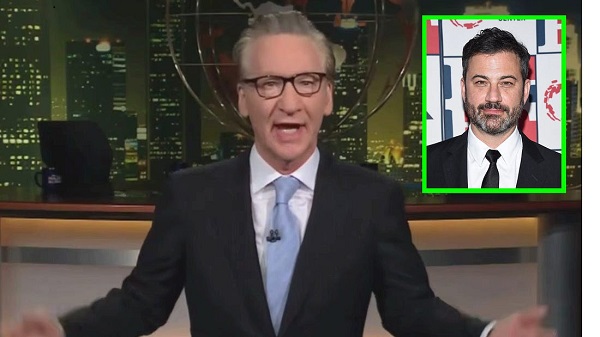
From The Vigilant Fox
Maher needed just 24 seconds to tear this false narrative apart.
Bill Maher broke his silence on the Jimmy Kimmel controversy during the latest episode of Real Time this Friday.
Maher called Kimmel a friend and said he hopes he gets his show back, but he also couldn’t ignore what he saw as a glaring flaw in the comments that landed Kimmel in hot water.
Kimmel had said on Monday that the MAGA crowd was desperately trying to score “political points” from Charlie Kirk’s death by “trying to characterize this kid who murdered Charlie Kirk as anything other than ONE OF THEM.”
It was a claim that poured gasoline on the grief of Kirk’s supporters, essentially blaming them for his death.
“Jimmy, look,” Maher replied. “I don’t think what he said was exactly right… He said the MAGA crowd was trying to characterize the assassin as anything but one of them because the guy’s family was MAGA.”
Then came the punch line:
“As if a 22-year-old with a trans girlfriend never rebelled against their family,” Maher said, waving his arms in disbelief that Kimmel missed something so obvious.
Later in the show, Maher turned to Charlie Kirk’s own words on “hate speech,” reading them with a sense of awe and declaring that he fully agreed.
Maher argued that liberals were the first to make it a thought crime, and now Republicans need to stop going down the same path by trying to curb “hate speech,” too.
Kirk’s quote read: “Hate speech does not exist legally in America. There’s ugly speech, there’s gross speech, there’s evil speech, and all of it is protected by the First Amendment. Keep America free.”
The audience ended up loving this quote as much as Maher did.
Maher also took aim at MSNBC pundit Matthew Dowd, who had been fired after essentially blaming Kirk’s death on himself.
MATTHEW DOWD: “You can’t be saying these awful words and then not expect awful actions to take place.”
MAHER: “Yes, you can! I do not expect awful actions to take place. I think this is awful. When you open this window, like, ‘I didn’t like what he said, and what he said was vile, and this and that.’ Irrelevant! Irrelevant. We don’t shoot people in this country, and we don’t defend it, and we don’t mock their death.”
But the part of the week that seemed to bother Maher most was Hollywood’s radio silence about Kirk’s death at the Emmys, just four days after the assassination.
Maher called out the utter hypocrisy:
“Would it have killed someone to get up there, since they all want to talk about their politics… just to say we had a political assassination this week and that’s wrong? They would have been booed off the stage because he was on the wrong team. So you’re not even allowed to say that. Could you imagine if a left-wing person was assassinated that week? The whole show would have been about that.”
This diatribe prompted MSNBC’s Alex Wagner to audibly scoff.
But Maher urged her to admit what she knew deep down was true.
Maher’s commentary laid out a hard lesson Democrats should heed: celebrating death, blaming the victim, and ignoring a person’s existence just four days after a political assassination shows you care more about politics than human life.
It’s a chilling reality many Americans are waking up to, which is why social media is overflowing with posts from former liberals walking away from the Democratic Party.
They don’t want to be tied to something so “disgusting, truly.” And honestly, can you blame them?
-
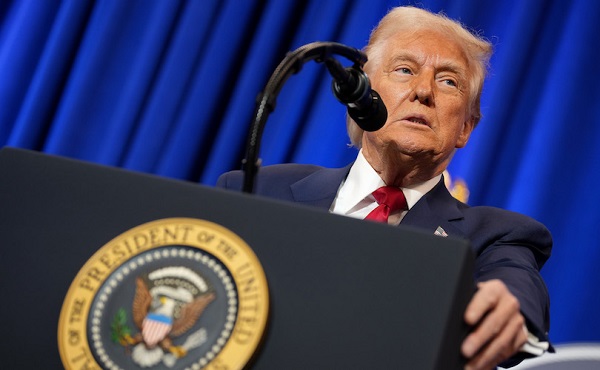
 International2 days ago
International2 days agoTrump sues New York Times for $15 billion over ‘malicious, defamatory’ election coverage
-
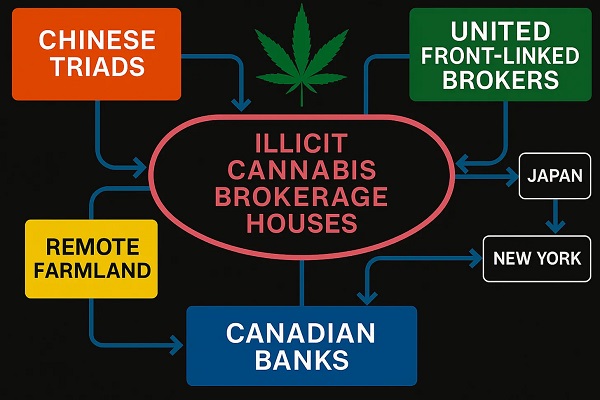
 Crime1 day ago
Crime1 day agoFrom Vancouver to Oklahoma: Canadian Murder Case and CCP ‘Police Station’ Links Align U.S. Testimony and The Bureau’s PRC Pot Investigations
-

 Alberta2 days ago
Alberta2 days agoEducation negotiations update: Minister Horner
-

 Addictions2 days ago
Addictions2 days agoNo, Addicts Shouldn’t Make Drug Policy
-
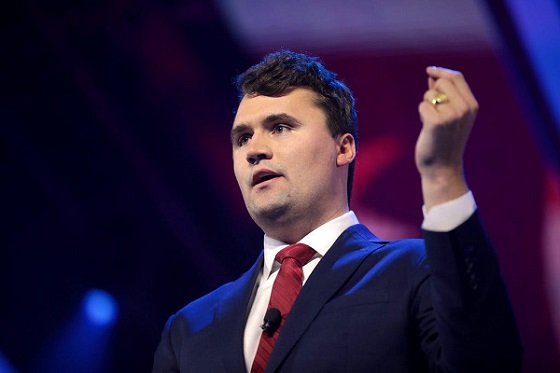
 Christopher Rufo2 days ago
Christopher Rufo2 days agoCharlie Kirk Did It All the Right Way
-

 Internet2 days ago
Internet2 days agoHow Google Quietly Shapes Human Behaviour and Thought
-
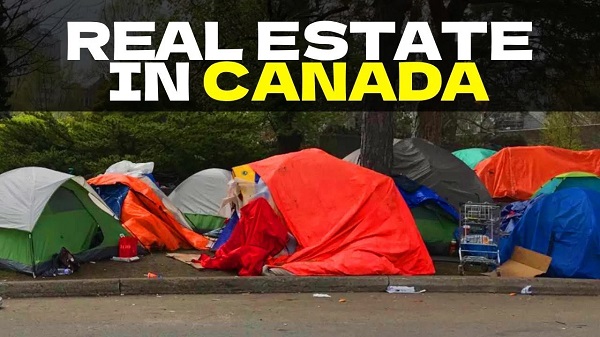
 Bruce Dowbiggin1 day ago
Bruce Dowbiggin1 day agoCarney’s Housing Meltdown: Building A Mystery
-
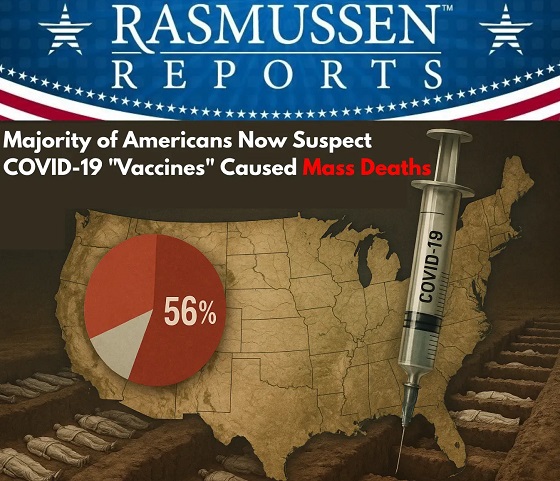
 COVID-192 days ago
COVID-192 days agoNew Study Obliterates the “Millions Saved” COVID Shot Myth










